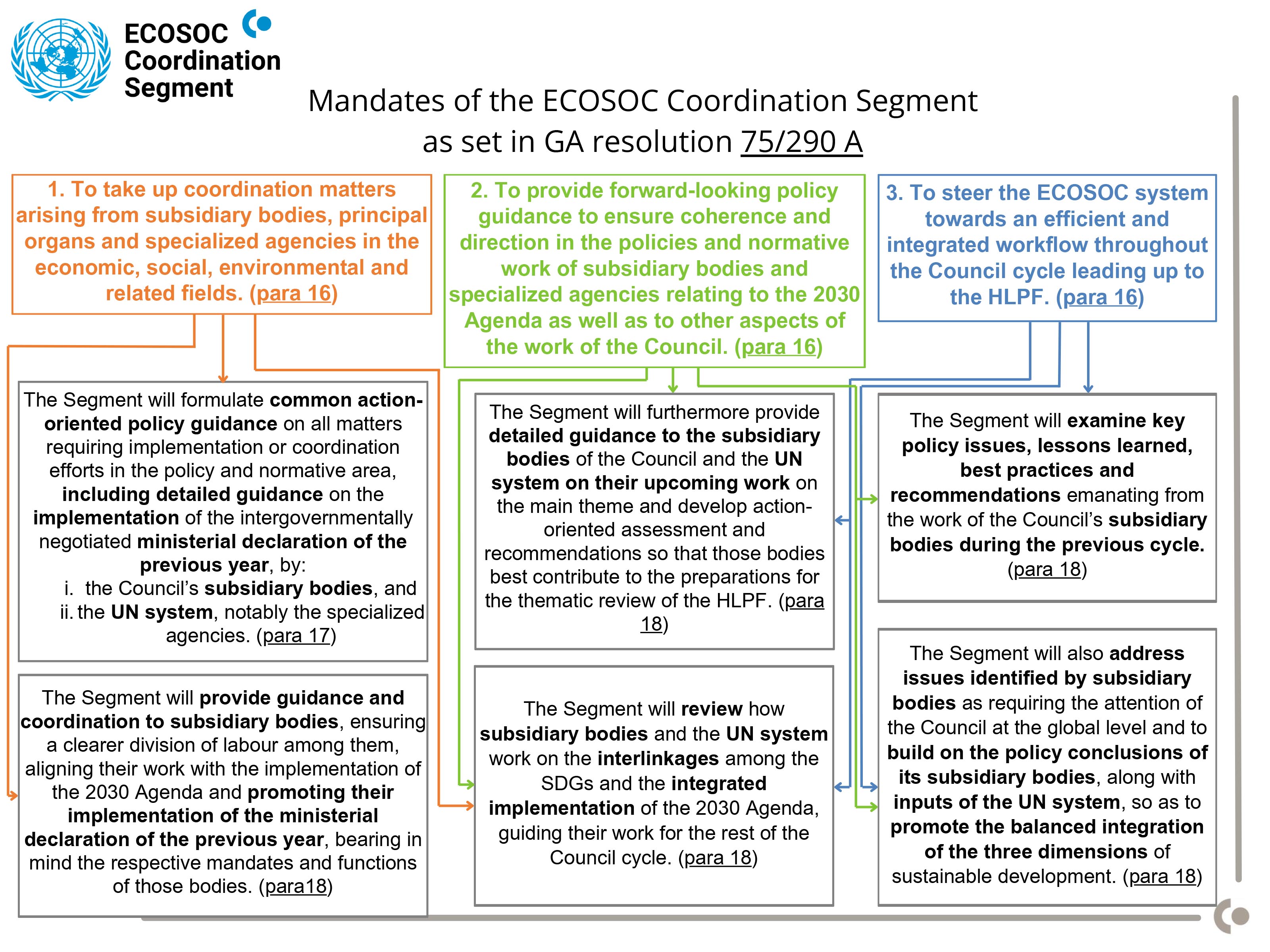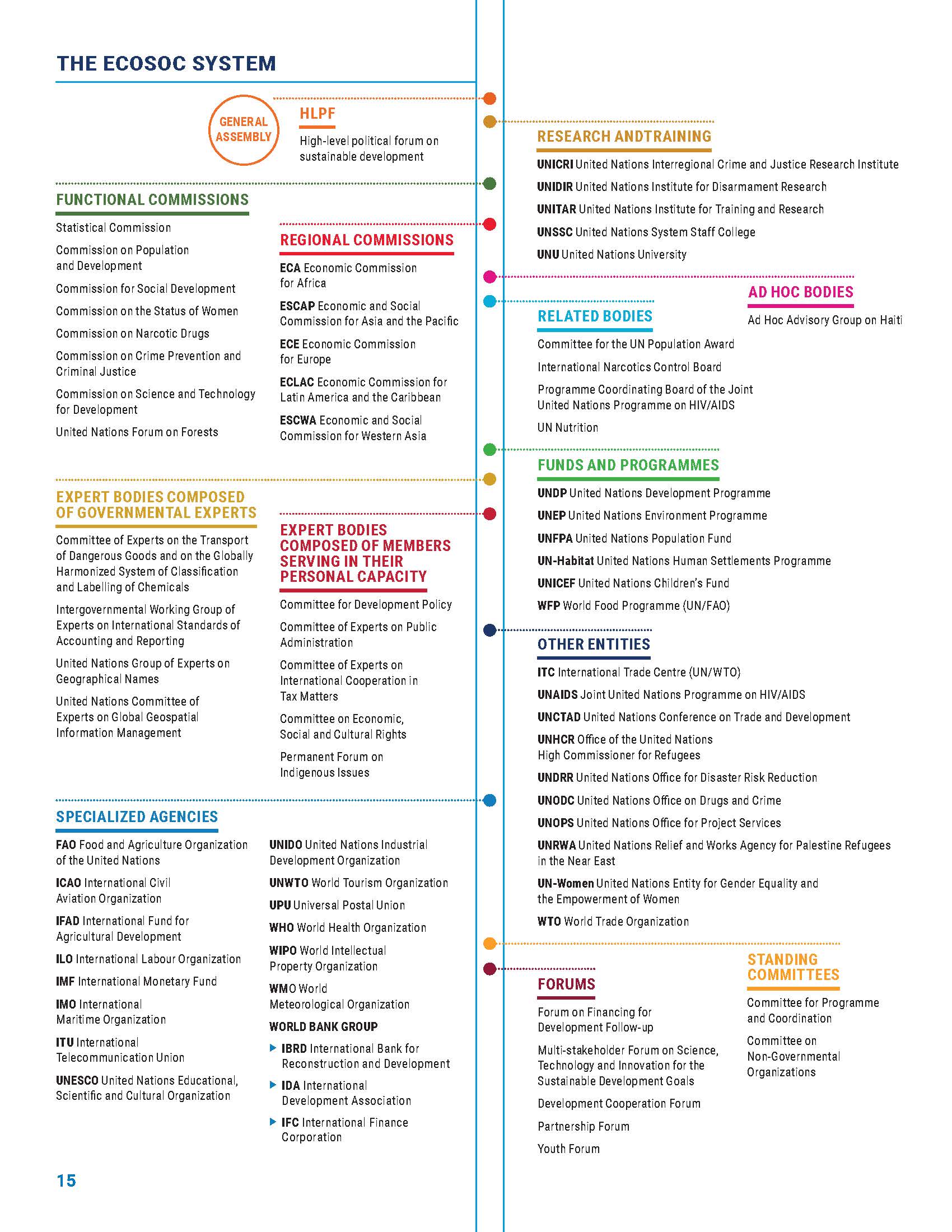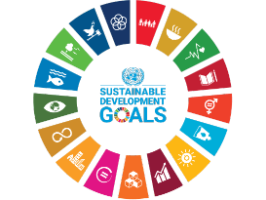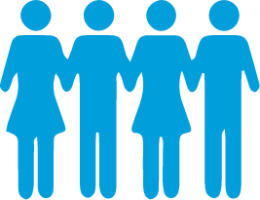Background
The new Coordination Segment of ECOSOC was created by the United Nations General Assembly in June 2021 as an essential part of a range of measures to strengthen ECOSOC (Resolution A/RES/75/290 A). It will allow the Council to better deliver on its Charter role to coordinate its subsidiary bodies and the UN system in the economic, social, health, environmental and related areas. The Coordination Segment replaced the Integration Segment and the informal meeting of the Council with the Chairs of subsidiary bodies.
With the new Coordination Segment, Member States will:
- steer the Council system towards an efficient and integrated workflow;
- provide forward-looking policy guidance to ensure coherence and direction in the policies and normative work of subsidiary bodies and specialized agencies relating to the 2030 Agenda;
- formulate common action-oriented policy guidance on all matters requiring implementation or coordination efforts;
- provide guidance and coordination to subsidiary bodies, ensuring a clearer division of labour among them, aligning their work with the implementation of the 2030 Agenda and promoting their implementation of the intergovernmentally negotiated ministerial declaration of the previous year;
- provide detailed guidance to the subsidiary bodies of the Council and the UN system on their upcoming work on the main theme and develop action-oriented assessment and recommendations so that those bodies best contribute to the preparations for the HLPF thematic review;
- review how subsidiary bodies and the UN system work on the interlinkages among the SDGs and the integrated implementation of the 2030 Agenda, guiding their work for the rest of the Council cycle.
Mandate

ECOSOC System
ECOSOC oversees a complex ecosystem of bodies in the economic, social, cultural, educational, health and related fields. This includes the Council’s subsidiary bodies — regional commissions, functional commissions and expert bodies and related bodies — and United Nations funds and programmes and specialized agencies. The Council is entrusted to guide and coordinate the work of these bodies. It also coordinates the work of other UN entities within its mandate of providing integrated policy guidance to Member States on the coordinated follow-up of UN conferences in economic, social and related fields and in promoting the balanced integration of the three dimensions of sustainable development. It thus has an influence on a wide remit of the work of the UN on sustainable development.

 Welcome to the United Nations
Welcome to the United Nations 




